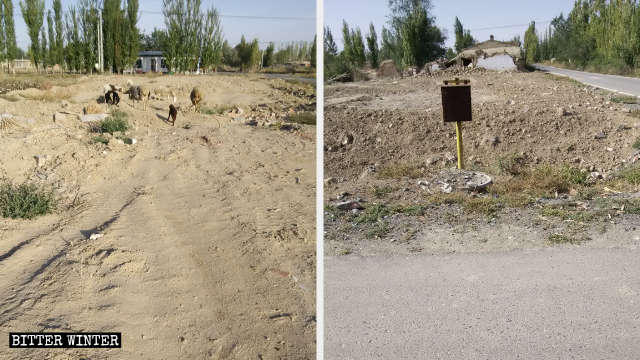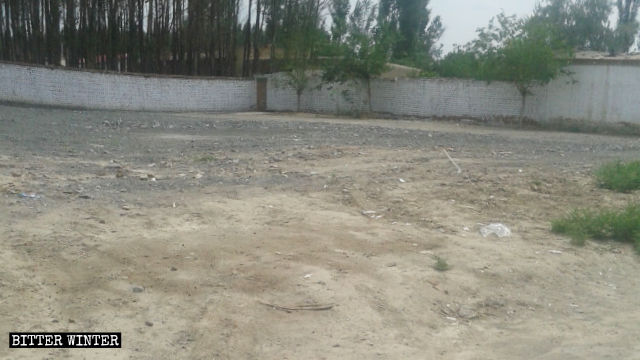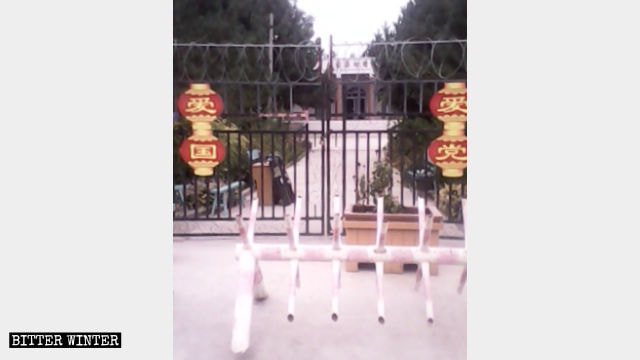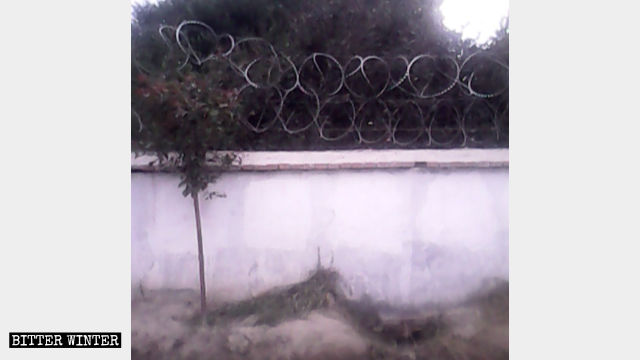A Bitter Winter reporter went to Shawan county to learn how government suppression affects daily lives: mass arrests, burned books, and destroyed mosques.
Located in the northwest of Xinjiang, Shawan county has a total population of about 210,000 people. Among them, Huis, Uyghurs, Kazakhs and other ethnic minorities account for about one-third of the total population.
Liushugou, under the jurisdiction of Jin’gouhe town, is a typical Muslim village, that used to have three mosques. In February 2018, the local government arrested four imams from all three mosques under the pretense of “counterterrorism and maintaining stability.”
The arrest operation did not stop there. On April 7, three local government officials came to the village to investigate the villagers’ religious beliefs. At around 4 am the following day, more than 20 Hui Muslims were arrested.
Village official also found a list of persons involved in building the mosques, and more arrests soon followed: In total, 43 people were arrested, the oldest of whom was 75 years old.
Furthermore, after the arrests of men, all of the village’s Muslim women were required to go to the village committee every evening to “study” for two hours. Government personnel frequented the homes of detainees to threaten their families not to talk to anyone about the arrests: “If anyone talks about it, they will be taken away to ‘study.’”
One Hui villager told Bitter Winter, “These people won’t be released until they have been ‘transformed’ — until they have given up their religious beliefs. The Communist Party only cares about maintaining stability. They don’t care at all about ordinary people. After arresting all the Hui and Uyghur Muslims, the Communist Party will arrest Han people who hold religious beliefs. Everyone who believes in Christianity or Buddhism will be arrested.”
Another villager said sarcastically, “I’m a person who enjoys eating, drinking, gambling, and whoring. I do all of that. The Communist Party knows [that I don’t have any religious beliefs], that’s why they let me go. Otherwise, I would be taken away just the same.”
On April 10, the three mosques in the village were completely demolished. Pits were dug in which to bury the ruins, leaving no trace of the mosques behind.

On the same day, a mosque in Jiahezi, another village in the county, under the jurisdiction of Anjihai town, was also razed to the ground. The mosque’s imam had been previously arrested. When his son went to the police station to ask why his father had been taken away, he was arrested as well, for merely asking questions.

Some weeks earlier, another mosque in Jiahezi village was also destroyed. At the demolition site, the county’s leaders reportedly ordered that not even one brick could be left behind. By the end of the four-day demolition, this mosque, which covered an area of about a half an acre, was removed entirely. No one could tell that a mosque ever existed there.
Compared to these demolished buildings, the mosque in Anjihai village, also under the jurisdiction of Anjihai town, can be considered “lucky.” Instead of being destroyed, only the crescent moon symbol was removed from the top of the structure. Hui villagers speculated that this mild treatment might be because the mosque’s imam obeyed the Communist Party.
Not all is well with this house of worship, however. Although it wasn’t demolished, the mosque now exists in name only.

A villager revealed that the mosque is now supervised 24 hours a day by Anjihai town government personnel, who take turns on duty. Inside the gate, there is a desk, a chair and riot shields for government personnel on duty. The front gate is locked, and an anti-vehicle barrier has been placed in front of it. None of the local villagers dare to enter to worship.

Making imams and mosques vanish wasn’t enough for the CCP, according to villagers. Books of scripture also must be disappeared. One villager reports that at a regular flag-raising ceremony, an official in Liushugou village told spectators, “Anyone who has books of scripture hidden in their home must hand them over to the village committee. If anyone fails to do so and is discovered, they will be taken away to study and be reformed.” Soon afterward, officials stationed in the village went door to door and ordered villagers to hand over their books of scripture. Most Muslim villagers were afraid of being sent to transformation through education camps, and handed over their scripture books.
One villager revealed that the village committee burned all of the confiscated books in a furnace; five sacks of books each day, and the burning continued for two weeks.
This is what a campaign of fear looks like. Understandably, no one in Shawan will go on the record or make an official protest.
Reported by Li Zaili
Go to Source
Author: Li Zaili




